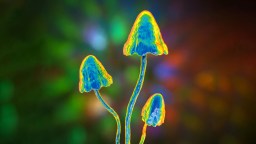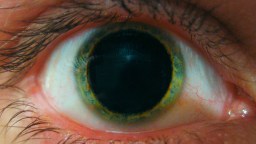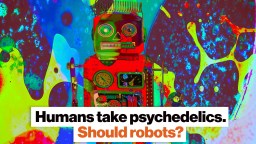psychedelics
Can psychedelics solve the ‘hard problem’ of consciousness? A Johns Hopkins professor explains.
▸
4 min
—
with
The real risks of psychedelics, explained by a Johns Hopkins expert.
▸
5 min
—
with
Psychedelic medicines are surging in popularity. Here’s how they work.
▸
6 min
—
with
Two different studies provide further evidence of the efficacy of psychedelics in treating depression.
A new study explores the therapeutic potential of the psychedelic drug ibogaine, which has been used in Africa for centuries.
Clinical trials by Janssen Pharmaceuticals showed troubling results.
Why do so many people report encounters with seemingly similar entities after taking DMT?
Just for giggles, would it be a good idea to have our leaders take shrooms?
How did psychedelics and computers converge?
Psychedelics are crude drugs. Could neuroscience and super-intelligent AI help us design something better?
▸
6 min
—
with
A groundbreaking new study shows that octopuses seemed to exhibit uncharacteristically social behavior when given MDMA, the psychedelic drug commonly known as ecstasy.
The Brazilian government has been trying to answer this very question in its ever-growing prison population, which has doubled since the year 2000.
If we’re going to treat psychological suffering as effectively as we treat pneumonia and broken bones, we’d better think outside the box.
It’s the 1st observed psychedelic-caused molecular changes inside human neural tissue.
There are many people who preach the supposed benefits of psychedelics, but none do it as well, nor as reliably, as these philosophers and scientists.
Imagine getting imperceptibly high, then playing Chinese strategy game ‘Go’. This is the experiment the Beckley Foundation will run to test the value of LSD microdosing.
A new study finds LSD — a Schedule I drug with “no medical value” — to be therapeutically beneficial.
Psychedelic mushrooms may be the explanation to how the human neocortex experienced a dramatic evolutionary change from early hominids to homo sapiens.

















